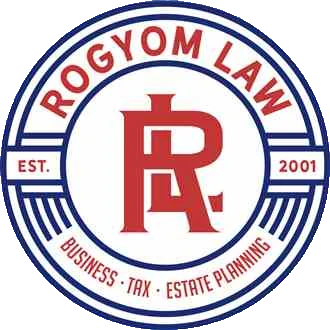Buying or Selling a Maryland Business:
Financing the Purchase
Maryland Business Sale Lawyer
givIn this article, I address obtaining the necessary financing to fund a business purchase. For information on other issues and concerns in a business transfer, please see my article, Buying or Selling a Business in Maryland.
Many business buyers’ greatest challenge is obtaining financing. While a business purchase requires substantial funding, the buyer’s financing options are numerous. Factors determining the best financing choice include: the seller’s needs, the buyer’s ability to pay, the company’s cash flow and assets, and the general economic climate. It’s important that you use a Maryland business attorney with experience in business sales to assist you in both determining the best financing method and dealing with lenders.
Purchasing a Business Using Seller Financing
Sometimes the seller of a business is willing to financing some or all of the purchase of a business. This can be for a number of reasons. The seller may be interested in having a steady stream of income or maybe the seller prefers the tax benefits of spreading the gain over several years. Still other times the seller may realize financing may be hard to come by for any buyer given the business, its location, or any number of other reasons.
In certain situations, the buyer’s only available financing source will be the seller, and buyers regularly use installment payment agreements to purchase businesses.
But if the seller needs immediate payment, seller financing may be limited or may require higher interest payments. The buyer would then need to explore other financing options.
Funding methods generally fall into two categories: debt financing and equity financing. But business purchases regularly combine both debt and equity financing to meet cash requirements.
Using Debt to Finance a Business Sale
Debt financing means borrowing money in the form of a loan from a third-party. The source for debt financing can be a bank or other business financing company, but can also include friends and family. Remember, a buyer’s loan collateral can include both the buyer’s personal assets and the target business’s assets as well. The buyer should seek a pre-qualified loan, even if the target business has not been identified. A buyer’s pre-qualifying can improve the buyer’s price negotiations and reduces risks should lending terms change.
The buyer may also obtain financing through Small Business Administration loans and local business promotion programs, such as those provided by Maryland’s Department of Business and Economic Development. SBA-guaranteed loans generally provide longer terms than loans regularly offered by the bank. Most commercial financing sources will fund up to 75% of the purchase price. If the buyer cannot contribute the remaining 25%, the buyer may seek equity financing for at least that portion.
Equity Financing to Purchase a Business
Equity financing means selling an interest in the business to be purchased. While not always appealing to a buyer, a silent or limited partner’s contributions will assist with immediate cash needs.
Using a silent or limited partner generally requires the buyer give up some control and profits. As co-owners, the buying group’s documents such as partnership agreements, LLC operating agreements, and corporate bylaws should consider each owner’s rights and obligations to the company.
These agreements may address issues such as: how much the partner must contribute, whether there will be required payments to the partner, whether the partner has an equity (ownership) interest or only a profits interest, how much control the partner will have, whether the partner can sell their interest, whether the company can purchase the partner’s interest, and, if the company exercises that option, how much the partner will be paid.
Third parties always complicate a transaction, and attorneys may be needed to negotiate the terms and draft the necessary agreements. You should never presume business partners will honor the deal, and the result of poorly drafted agreements is often litigation and soured relationships.
Customized Financing
As stated above, many buyers choose to combine both debt and equity financing, but the transaction itself can be structured to ease financial constraints as well. For instance, if the company owns real estate, it may be possible to strip the real estate from the business for a separate sale using traditional real estate financing.
Using a similar transaction, a buyer may be able to locate an investor interested in owning the property, but not the business. The business buyer would have to be satisfied with leasing the property, but a lease with an option-to-buy or right-of-first-refusal may be a way to make these transactions work for everyone.
Further, certain leasing companies will actually purchase the company’s equipment and lease it back to the company. There can be both cash flow and tax benefits to such arrangements.
Certain financing companies provide loans on or will purchase outright otherwise illiquid assets, such as the business’s accounts receivable. While not always the best financing source, certain companies will purchase promissory notes offered by buyers. For a seller primarily interested in receiving cash, this may be incentive enough to allow a buyer to purchase a business using only a buyer’s note.
In conclusion, while the business purchase requires substantial funding, the financing options are numerous. Before signing the bank loan, the buyer should consider the benefits of other funding sources.
Ready to get started? We’re Ready to Help.
If we cannot assist you, we will gladly provide you with referrals.
TESTIMONIALS

